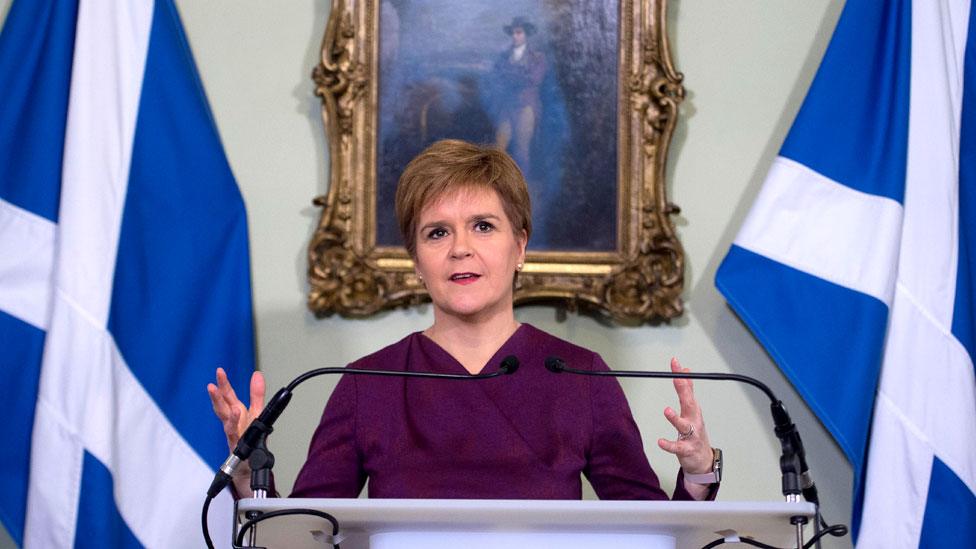'Empathy' for independent Scotland joining the EU says Tusk
- Published
Donald Tusk: "Sometimes I feel very Scottish - especially after Brexit"
Former European Council president Donald Tusk says Brussels feels "empathy" towards an independent Scotland joining the European Union.
Nicola Sturgeon has said an independent Scotland would seek full EU membership.
When asked if this would be looked upon favourably, Mr Tusk said there would be enthusiasm but he warned the country would not be automatically accepted.
Foreign Secretary Dominic Raab warned the comments could encourage "separatist tendencies" in the EU.
They were "rather un-European and rather irresponsible," he added.
"I'm not sure European leaders, let alone here in the UK, would actually welcome that comment," he said.
Mr Tusk, who served as European Council president for five years until November last year, told the BBC's The Andrew Marr Show that he feels "very Scottish, especially after Brexit".
When asked about the prospect of an independent Scotland joining the EU, the Polish politician said he had to "respect the internal debate in the United Kingdom" and it was not his role to intervene.
But when pressed on the level of support in the EU towards an independent Scotland joining the union, he said: "Emotionally I have no doubt that everyone will be enthusiastic here in Brussels, and more generally in Europe.
"If you ask me about our emotions, you will witness I think always empathy."
However he warned that any future entry bid on the part of an independent Scotland would not be automatically accepted - "formalities" and treaty agreements would still need to be adhered to.
It came as other European leaders expressed sadness at the UK leaving the EU.
French President Emmanuel Macron said he was, external "deeply sad" while the EU's Guy Verhofstadt pledged to try and "ensure the EU is a project you'll want to be a part of again".
Mr Tusk's comments come after his predecessor, Herman Van Rompuy, last year said he believes Brexit has changed EU attitudes to Scottish independence.
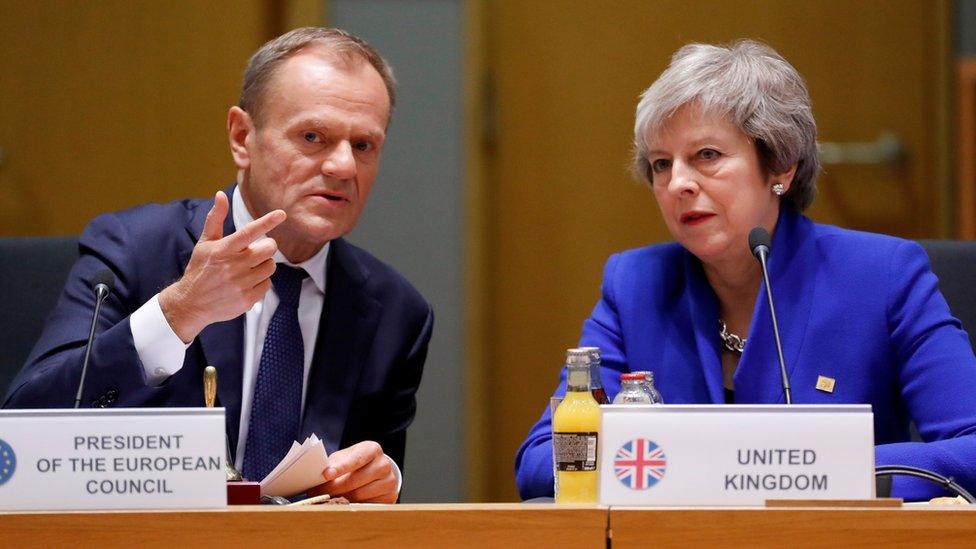
Donald Tusk and former prime minister Theresa May were locked in Brexit negotiations for years
Britain officially left the European Union on Friday at 23:00 GMT after 47 years of membership, and more than three years after it voted to do so in a referendum.
Scotland voted in favour of the UK staying in the EU by 62% to 38% in 2016.
The overall UK result backed Leave by 51.9% to 48.1%.
In a speech on Brexit day, Nicola Sturgeon said there was "real and profound sadness" felt by many Scots, also tinged with anger.
An independent Scotland would require the backing of all 27 EU members to join the trading bloc and there are a number of countries which have already applied and started accession negotiations.
The European Policy Centre think-tank, of which Mr Van Rompuy is president, last year published an analysis on independent Scottish membership of the EU.
It concluded that the EU should "engage positively" with Scotland in the event of independence, if there had been a properly constituted referendum.
But it said Scotland could not expect "special treatment" and that the Scottish government would have to accept all the obligations of membership, including agreeing in principle to join the euro.
- Published15 September 2019
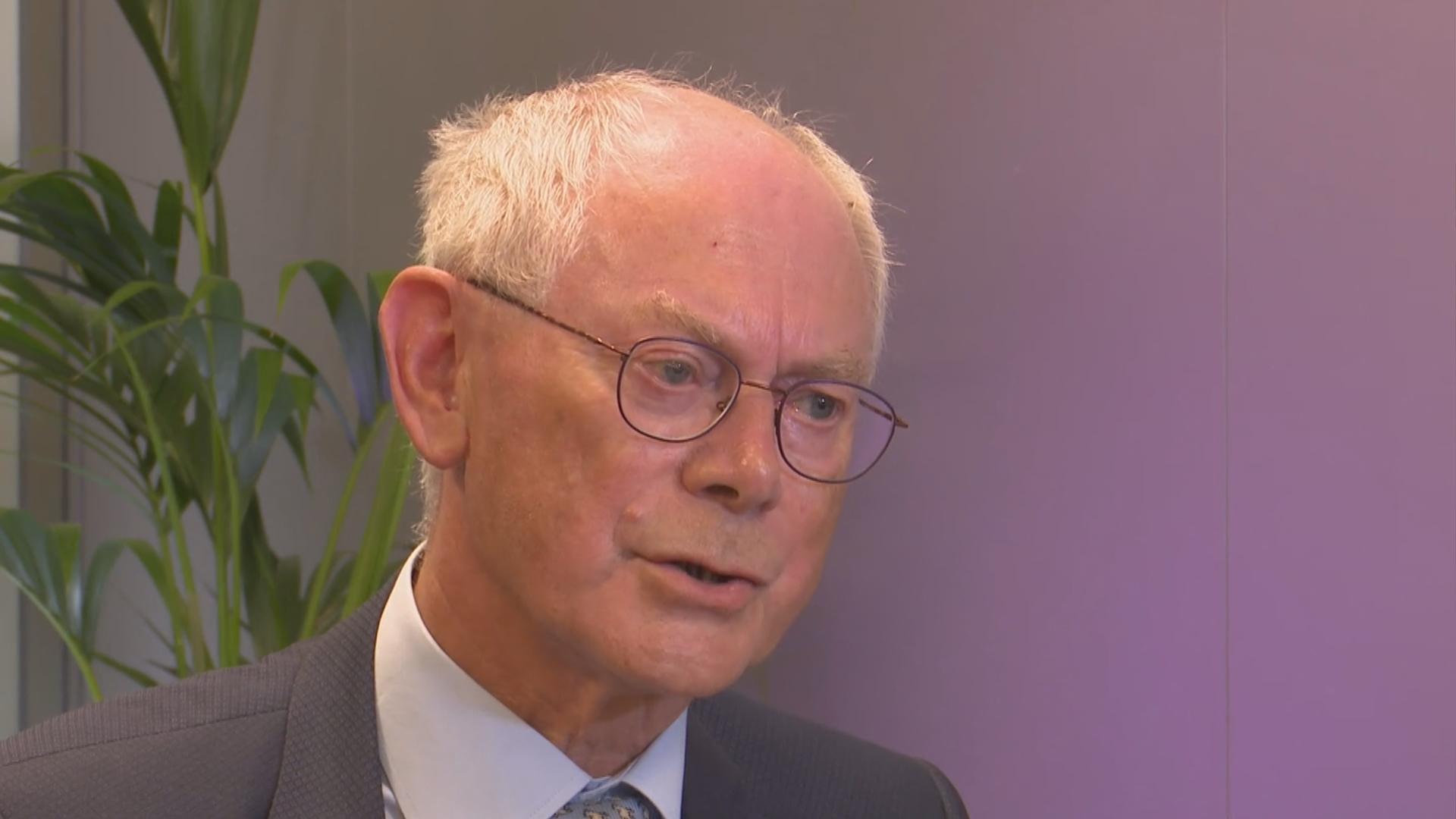
- Published23 November 2022
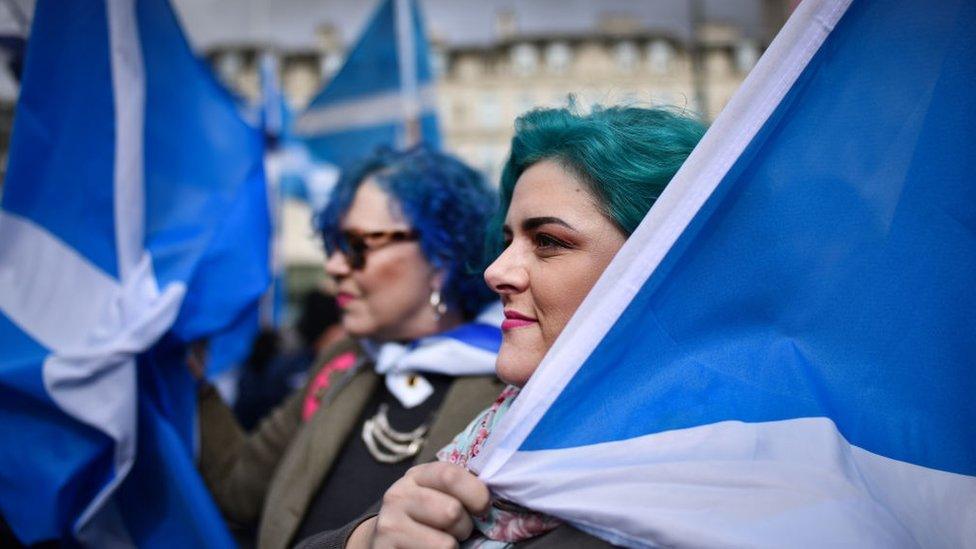
- Published25 November 2019
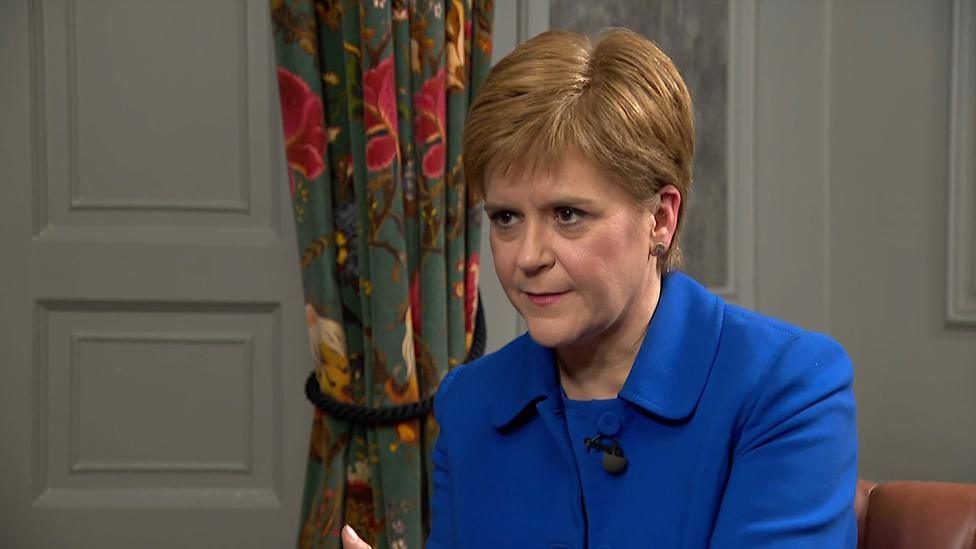
- Published14 January 2020
